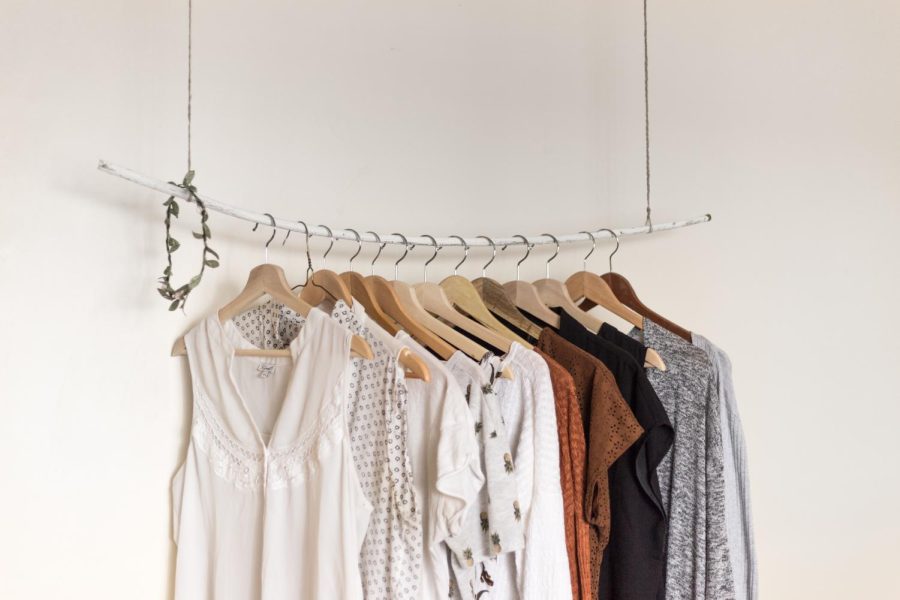Psychology of getting dressed
UNSPLASH PHOTO COURTESY OF Priscilla Du Preez
The clothes a person wears have many effects such as psychological and can even be the way they express themselves. https://unsplash.com/license
September 15, 2022
When it comes to clothing, there’s a lot more than what meets the eye. Beyond just appearance, clothes can impact the way a person thinks and is perceived, a phenomenon scientists have deemed “enclothed cognition.”
Studies on enclothed cognition first began at Northwestern University, where two professors tested how the use of lab coats affected the productivity of their students. 58 students were split into two groups, with one wearing lab coats, and underwent 50 rounds of tests. The results, published in the Journal of Experimental Psychology, show that “physically wearing a lab coat increased selective attention compared to not wearing a lab coat.”
Similar to how lab coats are considered professional, enclothed cognition comes into play in areas like job interviews or going out on dates.
Some people, including sophomore Leigh Batzar of Middletown, feel pressured to dress in a more refined, professional look for events that may affect her future.
“I think I have to dress a certain way for different events, like job interviews where I feel I shouldn’t wear ripped jeans or a cropped shirt. I should present myself more like an adult and keep away from the more ‘teen’ trends,” Batzar said. “I think we as teens want to present ourselves in a more appropriate way to show that while we can have a fun side, we can also have a more serious, adult side.”
The clothes you wear affect not only what others think of you, but also how you think about yourself. Senior Quinn Bender of West Long Branch thinks that it is important to dress for certain occasions, but finds himself catering to his own clothing needs most of the time, a mentality that has gained him thousands of followers across social media.
“I’ve built my entire platform on promoting individualism, self-expression, and self-love since they’re all things I strongly believe in, and the clothes you wear can be a great way to practice all of that,” Bender said. “I didn’t like being told I couldn’t dress how I wanted to, but I stopped listening. I dress the way I do because it makes me happy, and it’s a world of difference.”
Style has historically gone beyond showcasing personality, with clothes traditionally holding underlying meanings. Fabrics like silk and colors like purple and gold have signified a high social class, symbols that spoke before the wearer even opened their mouth.
“Fashion is a form of art; it tells everyone what we’re thinking or feeling without words,” said junior Lydia Oliveri of Colts Neck. “If you don’t agree, think about it: What if Voldemort and Dumbledore switched clothes? What about Regina and Janis from Mean Girls? That’s what makes personal style so important. It’s a manifestation of who we are as human beings.”





